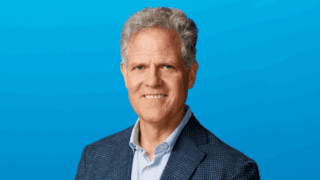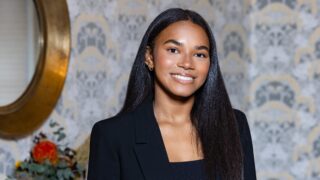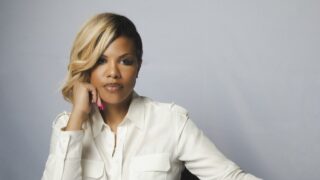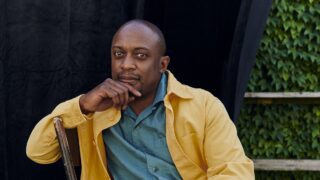The Lavin Agency Speakers Bureau
A speakers bureau that represents the best original thinkers,
writers, and doers for speaking engagements.
A speakers bureau that represents the best original thinkers,
writers, and doers for speaking engagements.
Engaging with our history opens up new ways of understanding race, identity, and how we relate to one another.
If we want to have conversations about race that bridge divides rather than deepen them, we need to understand our history first, says Caleb Gayle. An award-winning journalist, historian, and contributing writer for The New York Times Magazine, Caleb is the author of the acclaimed book We Refuse to Forget, the story of an extraordinary moment in Black and Indigenous history, as well as BLACK MOSES, which chronicles one Black politician’s fight to establish Oklahoma as a Black state in the 1800s. In expansive talks, this Northeastern professor weaves together critical questions of identity, religion, democracy, and much more with an insightful and empathetic eye. Through historical analysis, personal experience, and riveting untold stories, he reveals how we are much more connected than we think—and offers us the tools to engage meaningfully on polarizing issues and build communities of true belonging.
“The history Caleb weaves is deeply relevant to the enduring and quintessential question, ‘who is an American?’”—Heather McGhee, New York Times bestselling author of The Sum of Us
A highly sought-after keynote speaker, Caleb Gayle is renowned for drawing insights from his personal history, the immigrant experience, and the deep study of history to explore the modern cultural and political landscape with depth and sincerity. He weaves together history, his reporting, and personal experiences to craft keynote talks to Fortune 500 companies, universities, community groups, labor groups and more, helping them realize the historical importance of the work they do today. In talks with larger companies, he weaves together his past corporate experience and his historical and journalistic work in race and identity to reveal the importance of building inclusive environments in their workplaces.
Caleb’s most recent book, BLACK MOSES, chronicles the forgotten story of one Black man’s fight to establish Oklahoma as a Black state. Simultaneously sweeping and intimate, BLACK MOSES touches on themes of freedom, identity, and self-determination that still resonate with us today. It was longlisted for the 2025 National Book Awards and named to Kirkus‘s list of the best books of the year. Ilyon Woo, Pulitzer Prize-winning author of Master Slave Husband Wife, writes that “Gayle skillfully uncovers a history that feels at once wildly alive, scarcely visible, and integral to the United States we inhabit now. This is a hidden history that Americans need to know.”
We Refuse to Forget, Caleb’s first book, is a powerful work of landmark American history that reshapes our understanding of identity, race, and belonging. In it, he tells the story of the Creek Nation, a Native tribe that both owned slaves and accepted Black people as full citizens. By diving into this history, he explores questions of racial and ethnic identity, citizenship, solidarity, belonging, and progress. In a starred review, Publishers Weekly calls it “a powerful portrait,” while The New Yorker says that the stories Caleb tells are “rich with both the subtleties and the crudenesses of America’s racial history.”
Caleb also serves as Northeastern’s Associate Director of the Center for Communication, Media Innovation, and Social Change. His writing has earned him recognition from New America, PEN America, and Harvard’s Radcliffe Institute for Advanced Study. Winner of the Matthew Power Literary Reporting Award, Caleb’s writing has appeared in The New York Times Magazine, The Atlantic, TIME, The Guardian, Guernica, The New Republic, and The Boston Globe, among many other publications. His nonfiction work has been recognized as part of the Notable Essays Collection of the 2019 Best American Essays. In addition to journalism and academia, Caleb has garnered experience in business as a management consultant at Boston Consulting Group and as a Venture Partner at the venture arm of the George Kaiser Family Foundation.
Caleb completed his undergraduate studies at the University of Oklahoma and received graduate degrees from the University of Oxford, Harvard Business School, and from Harvard’s John F. Kennedy School of Government. He has also taught as a visiting professor at Columbia University’s School of Arts.

One of America's Foremost Experts on the Declaration of Independence Award-Winning Author, Disunion Among Ourselves
New Yorker Writer Author of Antisocial

Founder of Vision & Justice Harvard Associate Professor Bestselling Author of The Rise and The Unseen Truth

Harvard Kennedy School Professor Author, How to Disagree Better

Harvard Economist MacArthur Genius Studying Economic Opportunity Director of Opportunity Insights

Speaker on Stress and Leadership in the Workplace Columbia Business School Professor Host, TED Business Podcast Expert, Limitless with Chris Hemsworth

Founder of the "I Matter" Poetry and Art Competition Teen Vogue 21 Under 21 Honoree Winner of the Princeton Prize in Race Relations

Former Mayor of Baltimore Founder, SRB & Associates

World-Renowned Artist Winner of the US Department of State Medal of Arts Guggenheim Fellow

#1 New York Times Bestselling Author of Grit and Situated | Pioneering Researcher on Grit, Perseverance, and the Science of Success

2024 Nobel Prize Winner | 3rd Most Cited Economist in the World | Bestselling Co-Author of Why Nations Fail and Power and Progress

Harvard Business School Behavioral Science Professor | "40 Under 40 MBA Professor" | Author of TALK: The Science of Conversation and the Art of Being Ourselves

#1 New York Times Bestselling Co-Author of Abundance | Host of thePlain English Podcast | Founder of the Substack Derek Thompson

#1 New York Times Bestselling Author of How the Word Is Passed and Above Ground | The Atlantic Staff Writer

At a time when questions of identity are taking center-stage in almost every political and cultural discussion, it’s never been more vital for us to understand how the history of this subject continues to affect us today—and how we can use it to build stronger communities and a better future for everyone.
In this necessary, thought-provoking talk, award-winning journalist and author Caleb Gayle draws on his extensive research and reporting to reveal the history of identity and how it’s formed, helping us better relate to one another (as friends, coworkers, fellow community members, and more). Weaving together the threads of history, untold stories, and personal experience, he makes complicated issues tangible for audiences of any background. Audiences leave his talk equipped to engage meaningfully on polarizing issues, and encouraged to take steps towards building a more inclusive America.

Religion may be a taboo topic at dinners and first dates—but it offers a unique window into how millions of Americans interpret the world around them. As we grapple with deepening divisions and questions of what it means to be American, understanding how religion intersects with race, identity, and policy can give us insight into the larger questions we’re asking about democracy today.
In this resonant talk, Northeastern professor Caleb Gayle offers audiences an incisive look into how religion shapes our own lives and the lives of those around us, helping us recognize the power of faith and intellectual exploration as both a divisive and unifying force in society. The son and grandson of Jamaican immigrant pastors, Caleb grew up in a world where faith was not just a Sunday ritual but the bedrock of both community and daily life. As an award-winning journalist and writer, he’s covered how the boundaries between church and state are increasingly contested, and how racial divisions between religious groups are becoming more apparent. He speaks with both deep empathy and critical insight, drawing on his wide experience to equip audiences with the tools to engage with these complex issues in a more informed and authentic way, fostering dialogue that bridges divides rather than deepens them.